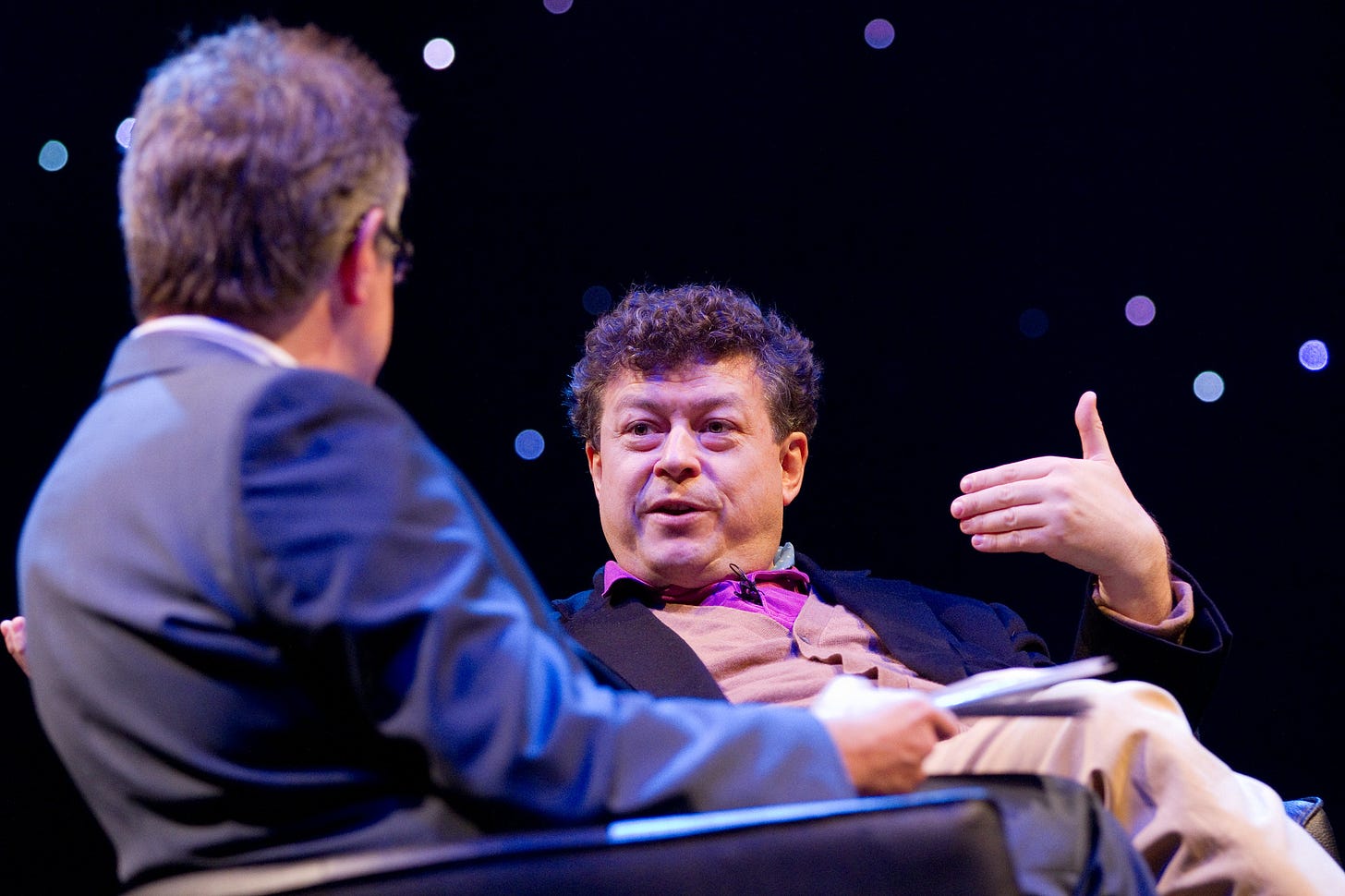Everything is a clip show now
Welcome to the era of the viral anecdote
When I was a child, I detested brushing my teeth. I’m not sure whether it was the tedium, the being told what to do or the fact of it as a transition from playtime to bedtime. Regardless, I resisted. But I always assumed that, once I crossed the threshold into adulthood, I would embrace the practice. It never quite happened.
For the avoidance of doubt, I brush my teeth twice a day. I even floss when the mood strikes me. But this requires a complex web of incentives, chief among them, permission to watch short-form video content on my phone. Two minutes in the morning, two in the evening, and that’s my quota.
It’s amazing what you can pick up about the culture in these tiny windows. Taylor Swift’s ‘Fate of Ophelia’ dance trend, that guy who rates ‘bad walkers’ on New York City pavements as well as the usual deluge of artificial intelligence slop. But the social media star of our age, at least as far as my algorithm has determined, is a late-middle-aged advertising executive.
Rory Sutherland, vice chairman of Ogilvy UK, is everywhere on short-form video platforms. I think there are a few reasons for this. First, he speaks in highly clip-able terms. His mouth is a machine gun of short, quotable insights, amusing analogies, paradoxes and offbeat observations. Almost every sentence is ready-made for a 30-60 second Instagram Reel, YouTube Short and TikTok.
Second, he is a genuinely brilliant storyteller. Vivid examples, unexpected comparisons, shocks of humour and the specificity that comes from working on real-life campaigns. Third, he straddles the intersection between psychology, businesses, marketing and behavioural science — a relatively rare and in-demand mix. Why do people behave irrationally? How can tiny tweaks make a big difference? Sit down around the campfire — Uncle Rory will explain.
Throw in his penchant for contrarian thinking which drives the comments, saves and shares that algorithms reward, and the fact that he appears on endless podcasts and is a frequent speaker at conferences (giving hours of long-form footage to clip) and the result is, well, short-form content heaven.
I recently watched a speech Sutherland delivered at the 2025 Welcome Conference, entitled, ‘Alchemy: The Surprising Power of Ideas That Don’t Make Sense’. With a Beagle chin occupying one hand and a cup of tea the other, I was settling in for an evening of geriatric millennial bliss.
And then, that sinking feeling. Oh no. The video was 44 minutes long and yet, I had already seen and heard every single anecdote, aside and offhand guffaw weeks earlier, in short-form chunks. One speech, long ago chopped (and not even by Sutherland himself) into dozens of bite-sized pieces of content for the world to nibble on.
Can you put that in a clip?
There are few more important skills in our present world than the ability to perform (without looking like a performance) on short-form media. Politicians who get this are winning, but some have in-built advantages. Because this is a medium that rewards specificity and simplicity, leaving no space for nuance or self-doubt. So —freezing the rent is good, migrants represent an invasion, Jews have too much power and so on.
Short-form video is catnip for populists on both extremes. Reform UK leader Nigel Farage with his one million-plus TikTok followers has as many as all other MPs combined. Second is Zarah Sultana, co-founder of Your Party. Other early exponents of this media include Germany’s far-right Alternative for Deutschland, Romanian far-right presidential candidate Călin Georgescu and newly elected New York City Mayor, democratic socialist Zohran Mamdani.
It is not impossible for more moderate parties and politicians to catch up. Charisma is not a fully incorporated subsidiary of the far-left and right. But tradeoffs have rarely been an attractive concept and do not sit easily in this 45-second moment. (Self-parody klaxon: there was a great discussion on this subject recently on one of my favourite podcasts, Mixed Signals by Semafor.)
The long and short of it
It’s not that there’s no space for long-form in our modern media ecosystem. Around 200,000 books are published each year in the UK alone, while in 2022 (the last year I could find trustworthy figures) 669 million physical books were sold. Meanwhile, you can always download and listen to a three-hour Lex Fridman or Josh Rogan podcast, or dive into a 12,000-word Ed Zitron newsletter.
But take it from me — a guy writing a mid-length daily newsletter — if you want to influence, persuade or just be noticed, you need to speak in a language the world already scrolls in. You can still be longwinded (see Rogan!) — just make sure you’re also bite-sized, quotable and shareable. And if you happen to stumble upon a history of the balance of payments while brushing your teeth, consider it a bonus.
Further reading: The Sirens’ Call: How Attention Became the World’s Most Endangered Resource — by Chris Hayes




I find brushing my teeth from a different starting point mixes up the tedium a tad .. same with flossing, and if you shave .. same rule applies . Start in a different place ! Great piece Jack.
I now follow Rory Sutherland on Instagram. The power of endorsement